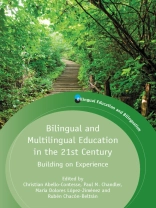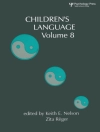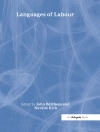Bilingual education is one of the fastest growing disciplines within applied linguistics. This book includes the work of 20 specialists working in various educational contexts across Europe, Latin America and North America to create a volume which is both comprehensive in scope and multidimensional in its coverage of current bilingual initiatives. The central themes of this volume, which draws on past experiences of bilingual education, include issues in language use in classrooms at elementary, secondary and tertiary levels; participant perspectives on bilingual education experiences; and the language needs of bi- and multilingual students in monolingual schools. This collection will be of interest to teachers and administrators in bi- and multilingual education programs, as well as scholars working in the field of language education.
Cuprins
Christian Abello-Contesse, Paul M. Chandler, María Dolores López-Jiménez & Rubén Chacón-Beltrán: Introduction and Overview
PART I LESSONS FROM ACCUMULATED EXPERIENCE IN BILINGUAL AND MULTILINGUAL EDUCATION
1. Christian Abello-Contesse: Bilingual and Multilingual Education: An Overview of the Field
2. Fred Genesee: Insights into Bilingual Education from Research on Immersion Programs in Canada
3. Anne-Marie de Mejía: Bilingual Education in Colombia: The Teaching and Learning of Languages and Academic Content Area Knowledge
4. Carmen Pérez-Vidal: Perspectives and Lessons from the Challenge of CLIL Experiences
PART II ISSUES IN LANGUAGE USE IN CLASSROOMS AT THE ELEMENTARY, SECONDARY, AND TERTIARY LEVELS
5. Jasone Cenoz & Xabier Etxague: From Bilingualism to Multilingualism: Basque, Spanish, and English in Higher Education
6. Gwyn Lewis, Bryn Jones & Colin Baker: 100 Bilingual Lessons: Distrubuting Two Languages in Classrooms
7. Elena Domínguez Romero & Jorge Braga Riera: Native Language Influence in Teaching Subject Matter Content through English in Spanish Tertiary Education
8. Ofelia García: From Diglossia to Transglossia: Bilingual and Multilingual Classrooms in the 21st Century
PART III PARTICIPANT PERSPECTIVES ON BILINGUAL EDUCATION EXPERIENCES: STUDENTS, LANGUAGE ASSISTANTS, STUDENT-TEACHERS, AND TEACHER-EDUCATORS
9. María D. Pérez Murillo: The Students’ Views on their Experience in a Spanish-English Bilingual Education Program in Spain
10. Nicole A. Tobin & Christian Abello-Contesse: The Use of Native Assistants as Language and Cultural Resources in Andalusia’s Bilingual Schools
11. Fernanda Liberali: Student-Teachers and Teacher-Educators Experience New Roles in Pre-Service Bilingual Teacher Education in Brazil
12. Miguel García López & Anthony Bruton: Potential Drawbacks and Actual Benefits of CLIL Initiatives in Public Secondary Schools
PART IV ON THE LANGUAGE NEEDS OF BILINGUAL AND MULTILINGUAL STUDENTS IN MONOLINGUAL SCHOOLS
13. Maurice Carder: International School Students: Developing their Bilingual Potential
14. Jaime E. Espinoza Moore & Emilia Alonso Marks: Heritage Spanish Speakers in School Settings: Are their Needs being Met?
Despre autor
Rubén Chacón-Beltrán is Associate Professor at the Universidad Nacional de Educación a Distancia in Madrid, Spain, where he teaches undergraduate courses in English as a foreign language and sociolinguistics, and graduate seminars in bilingualism and language policy.












